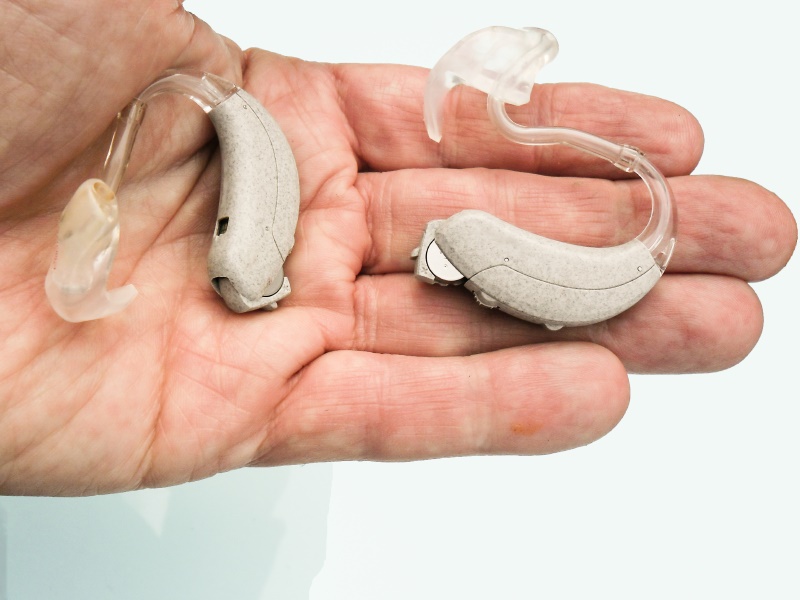
To help keep your hearing aids working correctly for years to come, you’ll want to learn about proper care and maintenance. And although it may seem like an additional burden, with the right plan your hearing aid care will come to be easy and automatic.
The trick is building productive habits.
If you include your hearing aid care into your everyday and nightly routines, pretty soon it won’t feel like any extra work at all.
The following are some tips for the day-to-day care of your hearing aids (which your hearing professional will also review with you):
Clean your hearing aids on a daily basis – Attempt to include your hearing aid cleaning into your nightly routine, so it becomes as automatic as brushing your teeth. This is critical because daily hearing aid cleansing can thwart the build-up of earwax, dirt, and dust into the different parts of the hearing aid, which can result in distorted sound over time.
You’ll want to clean your hearing aid with a soft, dry cloth, while avoiding any kind of fluids that can damage the hearing aid electronics. Talk with your hearing professional for special guidelines on cleaning each style of hearing aid.
You may also wish to consider purchasing a hearing aid sanitizer, which makes use of ultraviolet light to safely and completely kill dangerous pathogens. Hearing aid cleaning kits are also available with all of the tools you’ll require to safely and securely clean the device without damaging the electronics.
Always check the batteries – Hearing aid batteries should be examined and replaced regularly to ensure top hearing aid operation. Consider using a battery tester in the morning to ensure you have plenty of power for the remainder of the day, and carry an extra set of batteries on hand.
At night, when your hearing aids are not in use, turn them off and store them in a cool, dry place with the battery door open.
Store your hearing aids in a safe and secure place – With respect to storage, you’ll want to remember three things:
- Keep the hearing aids away from moisture. This means that storing your hearing aids in the bathroom is probably a bad idea.
- Try to avoid exposing the hearing aids—and hearing aid batteries—to extremes in temperature. You’ll want to store your hearing aids in a cool, dry place.
- Avoid storing your hearing aids out in the open, where they can become damaged.
We suggest keeping your hearing aids in a container or drying kit inside the drawer of a bedroom side-table. This will defend the hearing aids from moisture, temperature extremes, and damage from being pushed off the table.
Also, don’t forget to remove your hearing aids prior to taking a shower, swimming, or using a hair dryer or hair spray.
Maintain ear hygiene – While earwax has many helpful properties, like protection and lubrication of the ear canal, it can cause severe damage to your hearing aids. As it becomes wedged within the hearing aid hardware, sound can become distorted.
Make sure you’re sustaining proper ear hygiene, and if you have excess earwax, consider scheduling a consultation with a professional.
Carefully insert your hearing aids – When inserting your hearing aids, lean over a table or soft surface in the event that the hearing aids fall. Hearing aids include sensitive electronics, so a fall on a hard surface could bring about severe damage.
Even with vigilant cleaning and maintenance, over time the hearing aid will call for more detailed cleaning or repair.
To make sure that you continue to receive the best sound possible, we advise having your hearing aids professionally cleaned by a hearing specialist at least twice a year.
Hearing care professionals will provide you with a deep cleaning, a tune-up, and will on occasion replace parts. Staying on top of this regular maintenance will extend the life of your hearing aids and will assure that you get the best sound.
